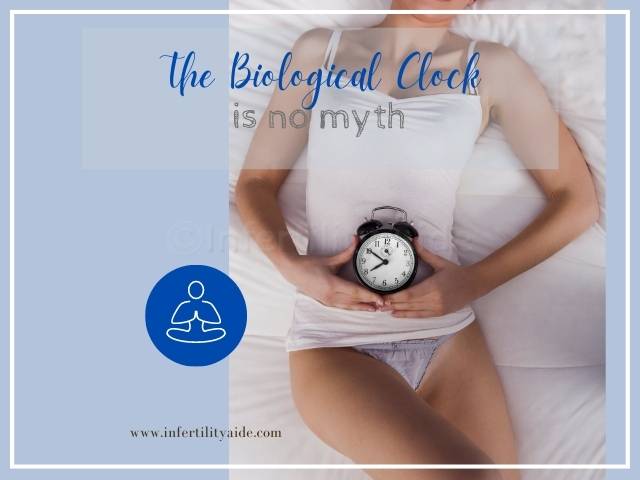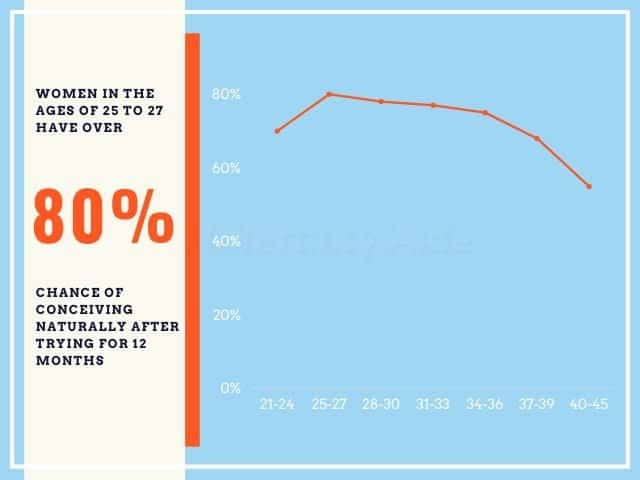Age is one of the most important factors affecting female fertility. A woman in her optimal health, should be able to conceive easily any time upto mid-30s, after which your fertility starts to gradually decline. So, what is a woman’s most fertile age that’s ideal to conceive, or say, to freeze your eggs? At what age are females most fertile?
Fertility in both men and women peaks in their 20s and declines with age, but in women, it happens much sooner—in their late 30s.
Why does female fertility drop over time?
The quantity and quality of eggs in a woman naturally declines as you age, causing your fertility to drop.

How many eggs do I have left?
Below is an estimate of the number of female eggs by age:
- At birth, you will have around 1 million eggs
- At puberty the ovaries hold around 300,000 eggs
- By 37 years, the number of eggs decreases further to around 25,000, and there’s a 20% chance of getting pregnant in any given month
- After 37, the number declines more rapidly and at 40 years there’s only around 5% chance of getting pregnant in one cycle
- By the time you hit menopause only 1,000 eggs remain and these are usually poor quality
What are the chances of getting pregnant by age?
According to the American Society for Reproductive Medicine (ASRM) around 80% of women in their fertile years will get pregnant within 6 months of trying actively (1).
Each month a healthy woman has between 15% to 25% chances of conceiving, if she is under 35 years old. By 40 years, this drops to just around 5%.

According to a large North American study that involved 3,000 couples trying to conceive naturally, a woman of 25-27 years has almost 80% chance of conceiving within 12 months of trying (2).
Below is the pregnancy chart by age in 20s, 30s, and 40s:
| Female age | Cumulative pregnancy proportion in 1 year |
|---|---|
| 21-24 | 70.8% |
| 25-27 | 79.3% |
| 28-30 | 77.9% |
| 31-33 | 76.6% |
| 34-36 | 74.8% |
| 37-39 | 67.4% |
| 40-45 | 55.5% |
At what age does a woman stop being fertile?
The chances of complications in pregnancy and the risk of miscarriage both increase after a woman crosses 40 years (3), which is why PGT is advised to improve IVF success rates, especially in women of advanced age.
Of those who conceive naturally between 40 and 44 years, 34% of the women face miscarriage and after 45 years, this rate is up to 53%. Note that even though a third of the pregnancies in early 40s end in miscarriages but most of them do not. However, that doesn’t mean you should wait until 40 to have a baby.
Technically, it is at menopause, when your ovaries have officially shut down but the eggs start to wither many years before that.
So, what is the best age for conceiving based upon the quality of your eggs?
At what age are you the most fertile?
Most of us do not have the choice of deciding at what age we can get pregnant, but those of us who do have the choice are often asking: what is the ideal age for a woman to get pregnant?
While it varies from woman to woman, the average fertility peak is considered to be 24 years, when over 90% of your eggs are chromosomally healthy.
Between 20-25 years, you have over 95% chances of conceiving after trying for 12 months. If any, fertility issues are more likely to be with younger males (under 25 years).
So, your early-to-mid 20s are the most fertile years for a woman, but for various social and professional reasons, not many would think to get pregnant or consider preserving their eggs at that age.
If we could have a system to preserve 3-4 eggs of a young woman without administering any outside drugs or hormones, while she’s still in her early 20s, we could be easing a lot of this infertility crises.
However, until we device such systems, you need to take care of your fertility and measure it regularly to know when is the ideal time for you to freeze your eggs.
How to check your fertility levels?
Not every woman faces a sudden fertility decline at 35 and even today, a higher number of women conceive naturally at that age than those who don’t. But if you’re somewhere in your 30s and wondering about your odds of getting pregnant, you can do the test for Anti Mullerian Hormone (AMH).
AMH test is ordered by the doctors to check your ovarian reserve and you can consult with a fertility expert to understand if you need to immediately opt for cryopreservation of eggs or you can wait for a few years.
When it comes to the quality of eggs, it is believed to decline in most women after their mid-30s but even at 35, you have 15-20% chance of conceiving in any cycle, which means around 78% chance of getting pregnant naturally within one year.
There are a few other fertility tests for women that can help you understand your current fertility levels, but there isn’t any fixed test that can determine the how healthy your eggs are.
So, if you’re anxious about the age and health of your eggs, get the hormone tests done and consult with a certified expert to understand at what age were you the most fertile, what are your current fertility levels, and if you need to preserve your fertility for conceiving in future.
A woman’s most fertile age is likely to be in her mid-20s. However, to understand your unique situation and fertility levels, you may get a few tests done and consult with a certified doctor.
A woman’s most fertile age is likely to be in her mid-20s. However, to understand your unique situation and fertility levels, you may get a few tests done and consult with a certified doctor.
References
- Optimizing natural fertility: a committee opinion. Practice Committee of the American Society for Reproductive Medicine in collaboration with the Society for Reproductive Endocrinology and InfertilityPublished: October 26, 2016 DOI: https://doi.org/10.1016/j.fertnstert.2016.09.029
- Wesselink, A. K., Rothman, K. J., Hatch, E. E., Mikkelsen, E. M., Sørensen, H. T., & Wise, L. A. (2017). Age and fecundability in a North American preconception cohort study. American journal of obstetrics and gynecology, 217(6), 667.e1–667.e8. https://doi.org/10.1016/j.ajog.2017.09.002
- Magnus, M. C., Wilcox, A. J., Morken, N. H., Weinberg, C. R., & Håberg, S. E. (2019). Role of maternal age and pregnancy history in risk of miscarriage: prospective register based study. BMJ (Clinical research ed.), 364, l869. https://doi.org/10.1136/bmj.l869
Reviewd by: Dr. Meenakshi, PhD